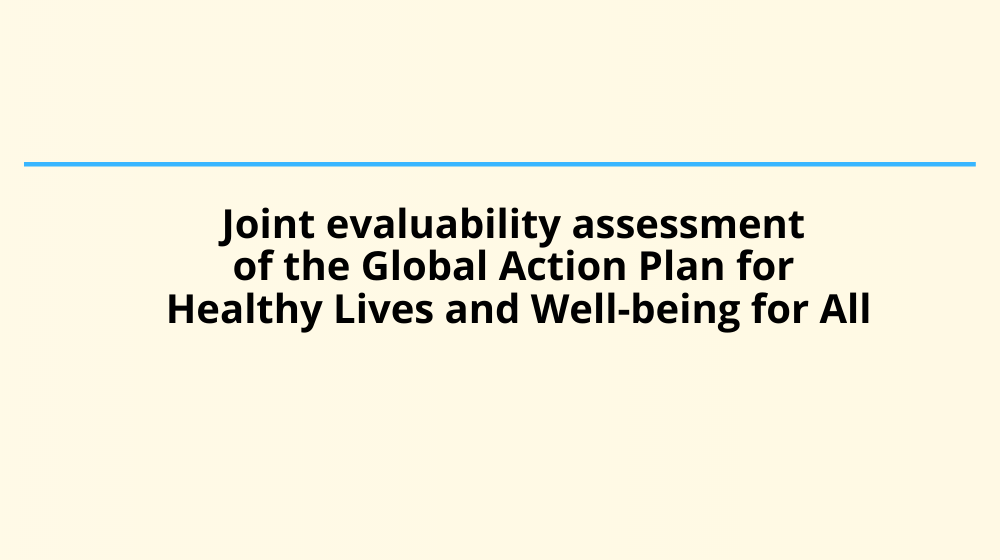The Global Action Plan for Healthy Lives and Well-being for All (the GAP) combines a focus on the health-related Sustainable Development Goals (SDGs) – which are of central importance at both the global and country levels – with a diverse, multifaceted and multi-level inter-organizational partnership of UN and non-UN actors. The 12 signatory agencies of the GAP include Gavi – The Vaccine Alliance, the Global Financing Facility (GFF), The Global Fund to Fight AIDS, Tuberculosis and Malaria, UNAIDS, UNDP, UNFPA, UNICEF, Unitaid, UN Women, the World Bank Group, WFP and WHO.
The joint evaluability assessment was commissioned in recognition of the complexity of multi-stakeholder partnerships, that it is therefore essential to identify, early on in the partnership, any significant gaps in the pre-conditions for success in the GAP and/or in its systems for measuring, reflecting on and addressing performance. This early assessment would help to improve the chances that the health-related SDG targets are met by 2030, while also indicating what frameworks and measurements would need to be put in place to demonstrate the progress and achievements and learn from the experience along the way. Further, given the health-related SDG targets are currently off track – a risk only exacerbated by the COVID-19 pandemic – underlines the importance of an early assessment.
With an evaluation of the GAP currently planned for 2023, the joint evaluability assessment applied an evaluative lens to the partnership now, so as to pre-emptively course correct any issues that the 2023 evaluation may raise, when it might be more difficult or even too late to address. In this way, the joint evaluability assessment helps the signatory agencies maximize the likelihood of the partnership’s success in supporting countries to achieve the health-related SDG targets.
